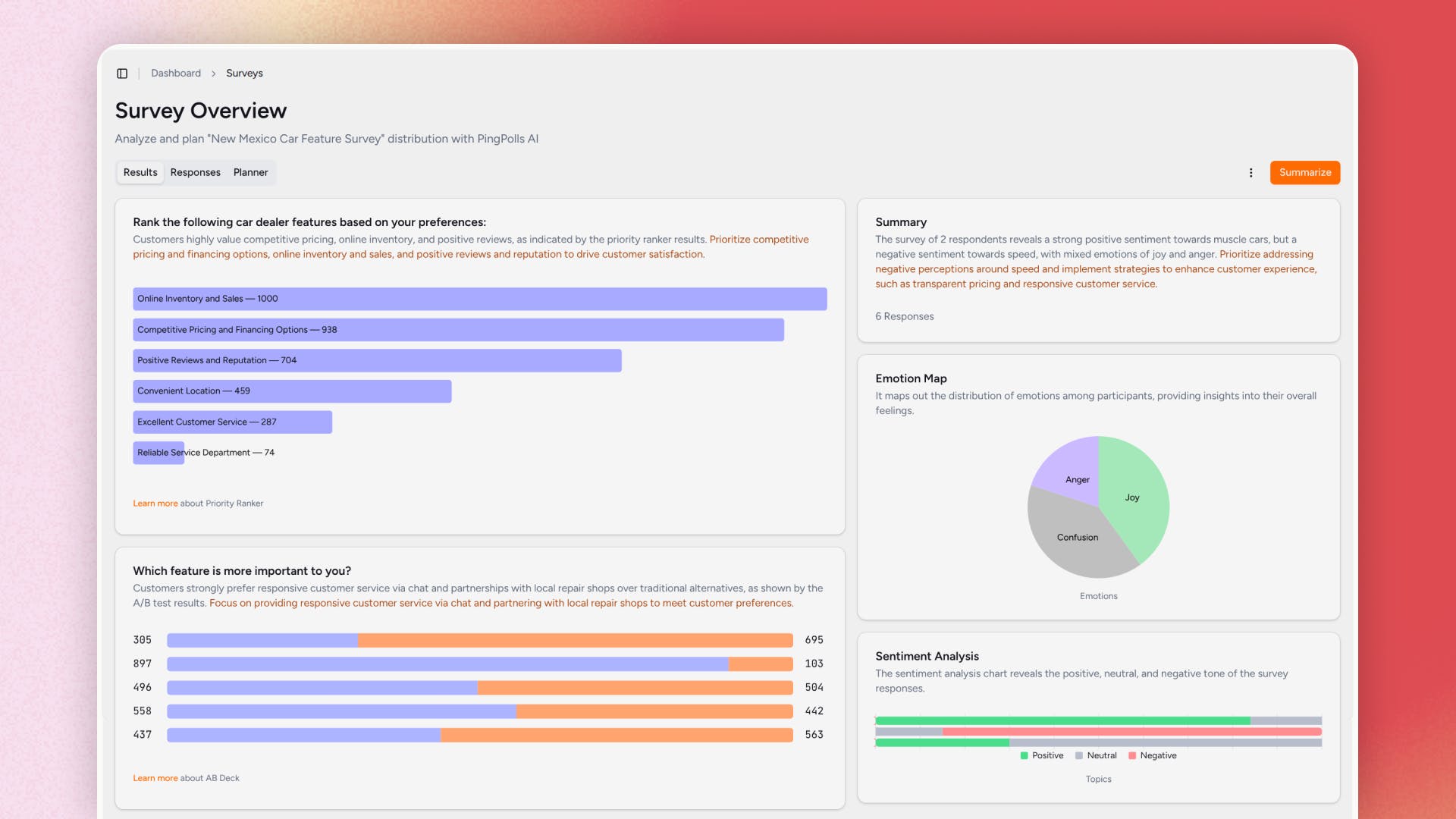As a founder, surveys are easy to build, but how do you get quality responses?

I’ve been creating online surveys for pilot studies and market validation, and honestly... making the survey isn’t the hard part. Distribution is. 🚧
Every time I launch one, I hit the same wall:
Getting enough responses at all
Making sure they’re genuine (not just random clicks) 🤔
I’d love to hear from this community: what’s worked for you in collecting both quality and quantity of responses? Any hacks, channels, or frameworks you swear by?
28 views


Replies
Hi Azvya, I recently did a quick survey for online validation. A few things I learned:
I leaned heavily on forums like Reddit and Discord, particularly the threads in the particular Health Tech area I was interested in. That got some quality responses, but maybe lacked quantity.
I found the type of questions I was asking helped me separate the quality responses and potential users. Instead of straight multi-choice questions, I'd have questions where the user had to input some text. Those 'random clicks' will either click away at the sight, or start inputting some useful data.
If you already have an MVP (Which may not be the case at this stage), you could incentivise with a free month or early access if the idea is followed through with. Everyone loves free things!
@kristian_jones This is super insightful Kristian, thanks for sharing your experience. The quality vs. quantity trade-off you mentioned with niche forums is the exact wall I keep hitting. It's fantastic for finding passionate early users, but challenging when you need volume.
Other than that, using a few open-text questions as a quality filter is a really interesting tactic. I normally thought that a drop in the rate of responses due to text-input questions would be detrimental, but it can be an effective way of prioritizing certain responses.
Reexamine your surveys. There are lot of bad surveys out there that people thought were good enough to post. The bare minimum that your survey needs to meet is to ask relevant questions and not be a thinly veiled method for you to collect email addresses to spam. Furthermore, if you're collecting personally identifiable information you better have a really good reason to do so and even then you shouldn't make those fields required.
A lot of survey builder websites are easy to use but a rudimentary understanding of survey design and potential biases is still needed to make them effective. You're asking for a minute or two of someone's time so make sure it's a survey that can be completed quickly. Keep the number of questions to a minimum and the question types relatively simple.
Do the people you are asking to respond to your survey have a reason to do so? Again the subject matter has to be relevant but other factors like reciprocity and liking can impact your survey's response rate (see Cialdini's principles of influence). Being trusted and respected by the community that you're planning to survey is the closest thing to a "hack" there is.
Offering a reward (i.e. discounts, free trials, cash, etc.) or potential reward (i.e. sweepstakes) can increase the response rate. However, there is a good chance that they'll also negatively impact the quality of results so it's probably best to avoid this when conducting your initial market research (as people will just click randomly to get through your survey as quickly as possible if the reward is attractive enough).
@william_zeidler This is a fantastic and incredibly thorough breakdown. Thank you for taking the time to write it, William. I think you've hit the nail in the head about being trusted and respected. So many of us just jump straight to the "ask" part, but the groundwork should come first.
That being said, I understand if some inexperienced founders and researchers, me included, would fail to plan our approach to the community.
In your experience, what are some of the best pre-survey actions we can take to build that initial reciprocity and trust before we even send the first link?